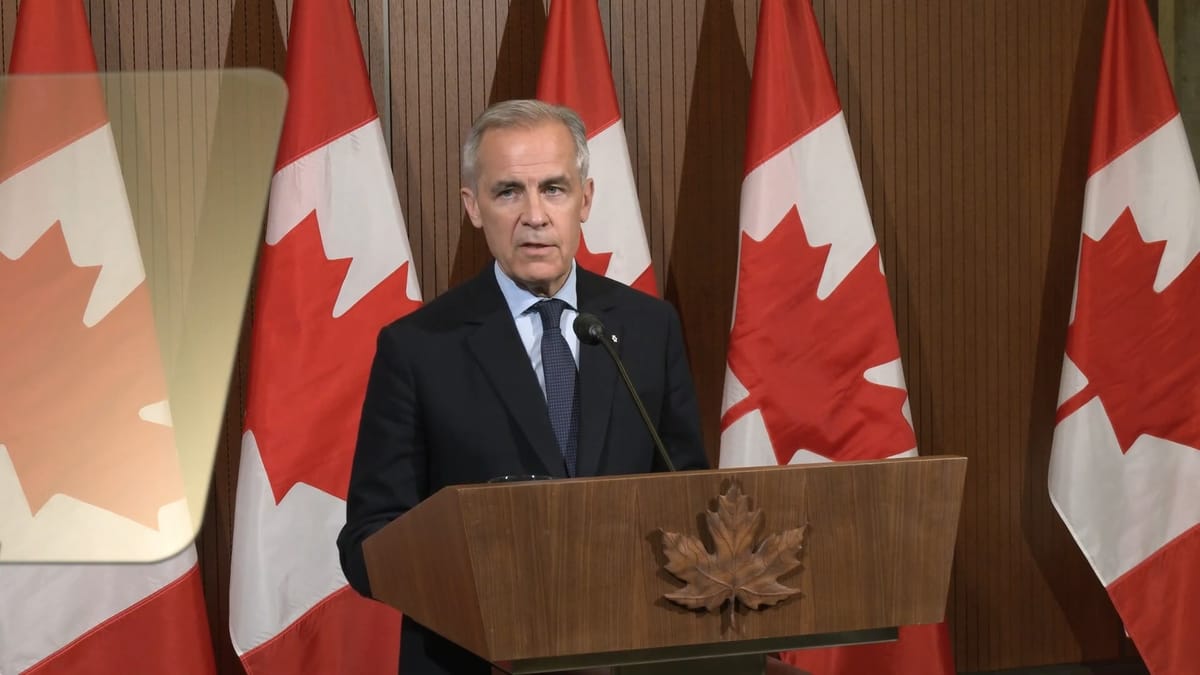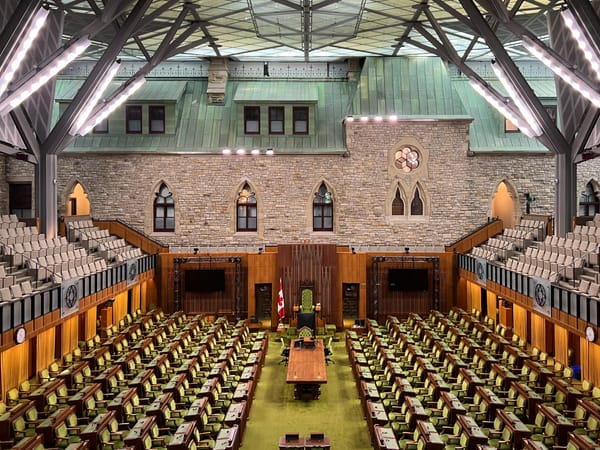Bill C‑5: The New “One Canadian Economy” Act Is Not What It Seems

You might not have heard much about Bill C‑5, and that’s by design.
Slipped into Parliament in mid-June 2025 and fast-tracked toward passage just before summer recess, Bill C‑5 is officially called the One Canadian Economy Act. It’s being sold as a breakthrough law to “tear down trade barriers” between provinces and “build infrastructure faster.”
The pitch? Canada needs unity and efficiency.
The truth? It’s a federal power grab, a bulldozer for industry, and a gut punch to Indigenous sovereignty — all wrapped in a press-friendly label and rushed past public scrutiny.
Let’s unpack what this bill actually does, why it’s raising alarm bells, and how it exposes a deep contradiction at the heart of Mark Carney’s supposedly climate-conscious leadership.
What Bill C‑5 Claims to Do
According to its authors, the bill does two main things:
- Eliminates interprovincial trade and labour mobility barriers, creating a so-called “One Canadian Economy.” In theory, this lets workers, goods, and services move freely from coast to coast.
- Speeds up the approval and construction of major infrastructure projects — pipelines, mines, energy corridors, highways — by allowing cabinet to bypass normal regulatory and legal processes.
It’s being pitched as a productivity and growth tool — the answer to Canada’s infamous internal red tape.
And yes, interprovincial trade barriers are real. But this bill doesn’t just “clean up duplication.” It rewrites how power is exercised in Canada.
The Hidden Power Grab
Buried in the second half of Bill C‑5 is the Building Canada Act — a section that lets the federal cabinet override existing laws if they decide a project is in the “national interest.”
That phrase — “national interest” — appears 16 times in the text. But nowhere is it clearly defined. There’s no checklist. No public test. No requirement for Indigenous consent. Not even a mandatory environmental review.
This is a blank cheque.
The bill doesn’t create a smarter process. It creates a shorter process — one controlled by the Prime Minister’s Office, with minimal public accountability.
If passed, this means projects like gas pipelines or lithium mines could be rubber-stamped in Ottawa without meaningful consultation, without Indigenous agreement, and without local or provincial oversight.
And once that precedent is set, it won’t stop at pipelines.
“Consultation” Without Consent
The federal government insists the bill respects Indigenous rights and follows the principles of UNDRIP (United Nations Declaration on the Rights of Indigenous Peoples). There’s language about “equity partnerships” and “engagement.”
But Indigenous leaders aren’t buying it.
The Assembly of First Nations (AFN), regional chiefs, and Indigenous legal experts have warned that Bill C‑5 violates the spirit — and potentially the letter — of constitutional and treaty rights.
AFN National Chief Cindy Woodhouse Nepinak called for an immediate pause, saying the bill could gut First Nations’ ability to protect their territories. The Chiefs of Ontario issued a similar demand, calling it a threat to “free, prior, and informed consent” — a cornerstone of UNDRIP.
In other words: You can’t legislate respect while bypassing it.
Who Really Benefits?
If you’ve ever heard a politician talk about “cutting red tape,” ask yourself: for whom?
Bill C‑5 doesn’t make life easier for nurses, tradespeople, or small businesses. It makes life easier for megaproject developers, energy companies, and political operators who want to push controversial builds without interference.
It lets cabinet ministers declare a project “urgent,” then sideline environmental hearings, local input, and Indigenous objections.
That’s not economic reform. That’s corporate accelerationism — and it’s exactly the kind of unchecked power that leads to disasters, lawsuits, and deepening distrust in federal institutions.
Why the Rush?
The bill was introduced in mid-June 2025 — just days before the House of Commons was set to adjourn for summer. By June 20, it had passed third reading. The Senate is expected to pass it before Canada Day.
That’s no coincidence.
It’s a PR stunt, meant to culminate in a July 1st announcement where the Prime Minister can declare: “We’ve united the Canadian economy.”
But uniting a country takes more than a headline.
You don’t build unity by stripping out safeguards, fast-tracking fossil fuel infrastructure, and ignoring constitutional duty to consult. You build resentment — and resistance.
Does Bill C‑5 Contradict Mark Carney’s Climate Persona?
Here’s where things really start to smell off.
Mark Carney — the brainy technocrat behind this government’s economic agenda — has spent years branding himself as a climate warrior.
He’s chaired climate finance task forces, warned about “the tragedy of the horizon,” and written an entire book (“Value(s): Building a Better World for All”) about embedding sustainability into capitalism. He’s been featured in documentaries, World Economic Forum panels, and op-eds calling for climate-first decision making.
So how does that square with a bill that will expedite oil and gas infrastructure, weaken environmental oversight, and marginalize Indigenous stewardship?
The answer: it doesn’t.
Either the Carney brand is hollow, or the man himself has traded green credibility for political convenience. Bill C‑5 exposes that contradiction like a crack in a frozen lake. If you squint, you’ll still see the clean-cut banker talking about “net zero.” But underneath? The ice is thinning.
You can’t talk about long-term planetary risk while legislating short-term fossil expansion.
Final Thoughts: Beware of Trojan Horses
Bill C‑5 is being marketed as “efficiency.” But efficiency without accountability isn’t progress — it’s authoritarian drift.
It centralizes power, overrides due process, weakens Indigenous rights, and breaks faith with the very values Mark Carney claims to hold dear.
It’s a Trojan horse. And if it passes, it sets a dangerous precedent — one that lets future governments trample democratic norms under the banner of “urgency” or “productivity.”
Canadians should demand better — not just from politicians, but from so-called climate leaders who know better, yet remain silent.
References & Further Reading
- The Guardian – Canada poised to pass infrastructure bill despite pushback from Indigenous people
- Assembly of First Nations – National Virtual Forum on Bill C‑5
- Climate Action Network Canada – Statement urging Senate to reject Bill C‑5
- Parliament of Canada – Bill C‑5: Legislative Summary and Status
- Mark Carney – Value(s): Building a Better World for All (Book Info)





